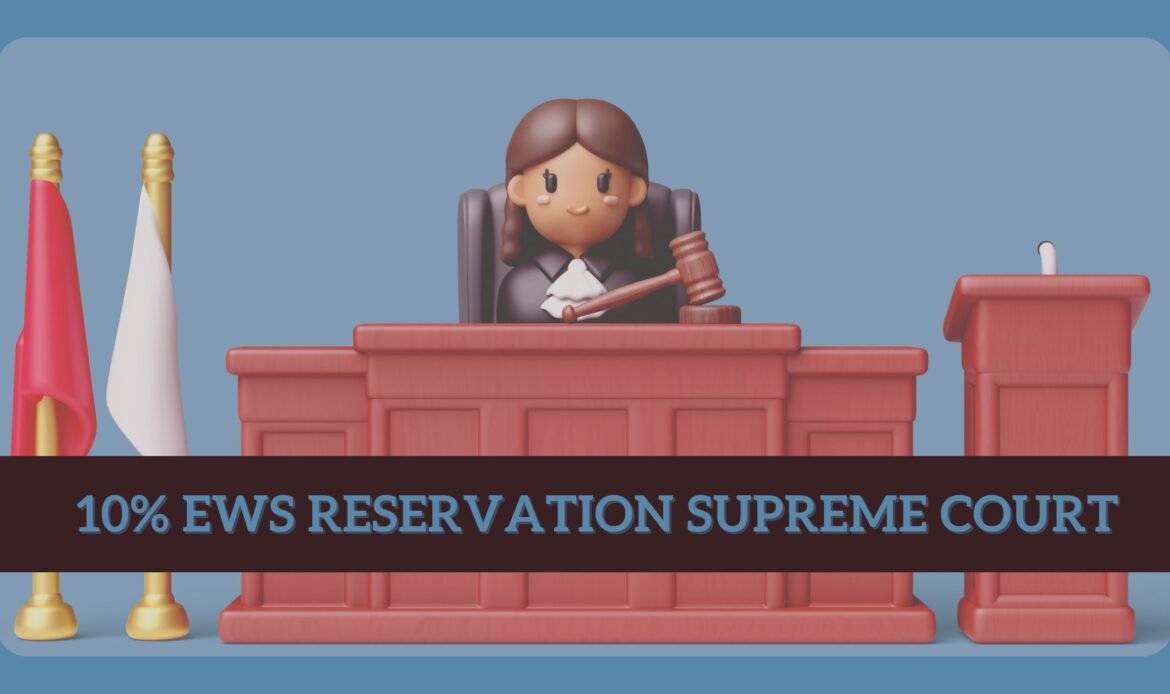The 10% Economically Weaker Sections or EWS reservation in India has stirred widespread discussion and debate since its introduction. This new reservation category, distinct from existing quotas for Scheduled Castes (SC), Scheduled Tribes (ST), and Other Backward Classes (OBC), aims to provide opportunities for individuals from economically disadvantaged backgrounds. However, its implementation and legal validity have been subjects of scrutiny and analysis, particularly by the Supreme Court of India. And, understanding the nuances of this reservation policy and its implications is essential in grasping its impact on the socio-economic fabric of the nation.
Do you wish to know more about it? If yes, keep reading this article.
What Led to the Introduction of 10% EWS Reservation?
The need for the 10% EWS reservation arose from recognising economic disparity among different sections of society. Despite progress in various fields, many people faced financial challenges that hindered their access to education and employment opportunities. The decision of the government to introduce this reservation was to address this issue and provide a level playing field for individuals from economically weaker backgrounds.
The reservation policy was also influenced by India’s evolving socio-economic landscape, where access to education and employment opportunities is seen as a crucial factor in achieving social mobility. By earmarking a percentage of seats and jobs for economically weaker sections, the government aimed to bridge the gap between the privileged and the underprivileged and promote inclusivity in various sectors.
How Does the 10% EWS Reservation Work?
The 10% EWS reservation operates alongside existing reservation quotas in educational institutions and government jobs. It applies to individuals who do not belong to any of the categories already covered under reservation policies but fall within the specified income and asset criteria set by the government. These criteria may vary depending on family income, land ownership, and residential property.
The reservation policy ensures that a certain percentage of seats in educational institutions and vacancies in government jobs are reserved for eligible candidates from economically weaker sections. However, implementation mechanisms and eligibility criteria have been subjects of debate and legal challenges, with concerns raised about potential loopholes and inconsistencies in the process.
What is the Legal Standing of a 10% EWS Reservation for the SC?
The Supreme Court of India is pivotal in adjudicating matters related to reservation policies and their constitutional validity. Regarding the 10% EWS reservation, the Supreme Court has been tasked with examining its legal standing and ensuring its alignment with constitutional principles, particularly equality and social justice.
In a landmark decision, the Supreme Court deliberated on various aspects of the reservation policy, including its constitutional validity and implications for existing reservation quotas. The court’s interpretation of the law and its implications for social justice and equality have significant ramifications for implementing the reservation policy across the country.
Final Words
Overall, the 10% EWS reservation represents a significant step towards addressing economic disparities and promoting inclusivity in education and employment. However, its implementation and legal validity remain subjects of scrutiny and debate.
For people seeking clarity on legal matters related to the 10% EWS reservation in Kolkata, Kshetry & Associates is a reliable source of support. As the best law firm in Kolkata, they have trusted legal advisors in Kolkata. The team that offers best legal services in Kolkata ensures that people facing challenges with the reservation receive the best legal assistance possible. With their expertise and dedication, Kshetry & Associates strives to uphold justice and equality for all.
For more such informative articles, stay tuned.

